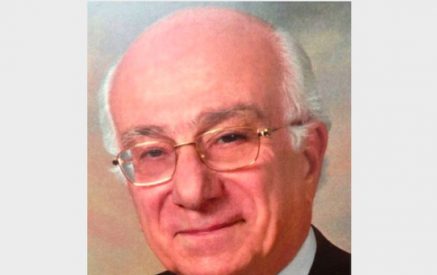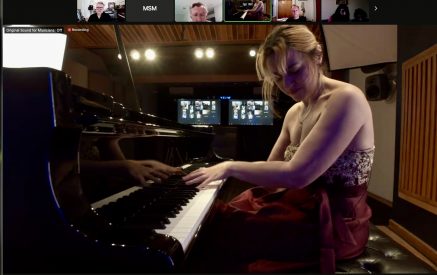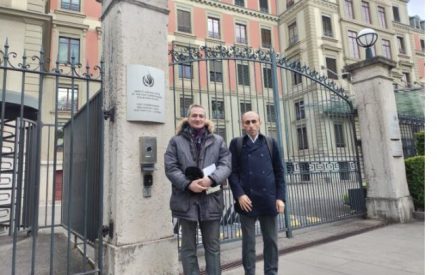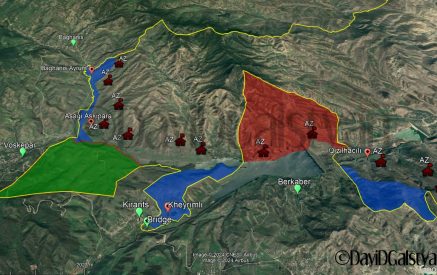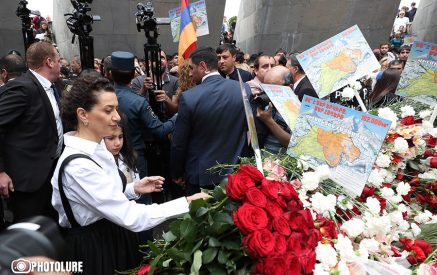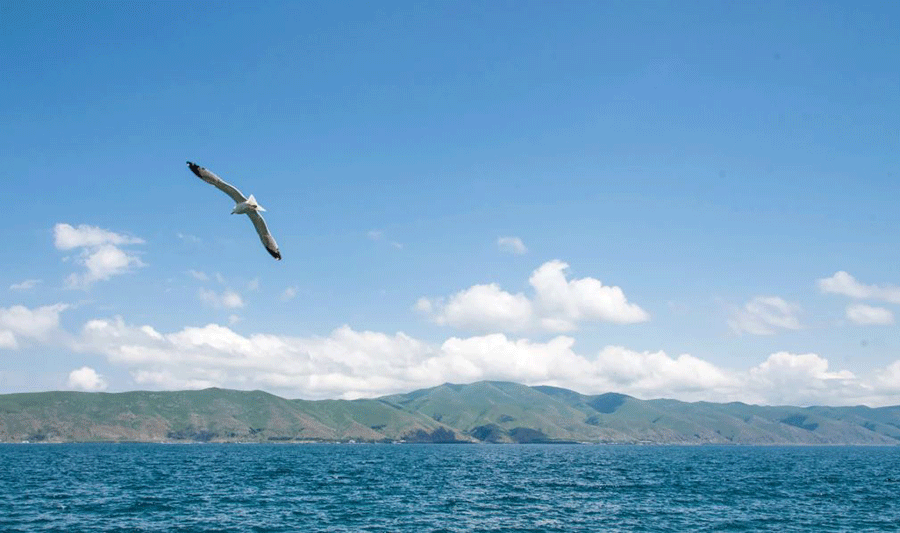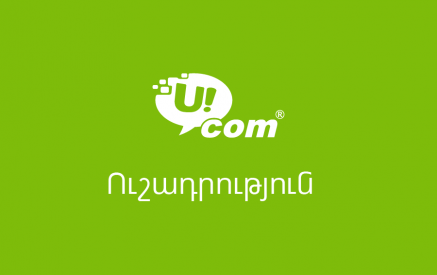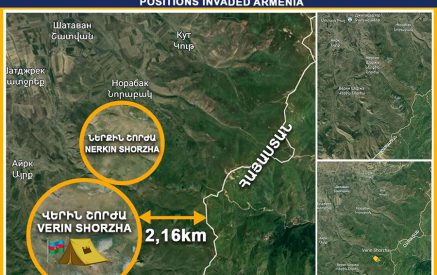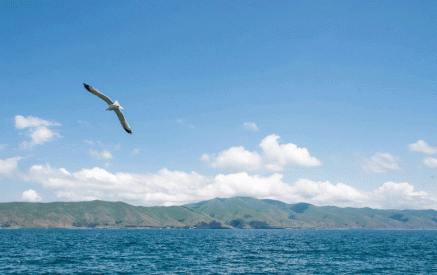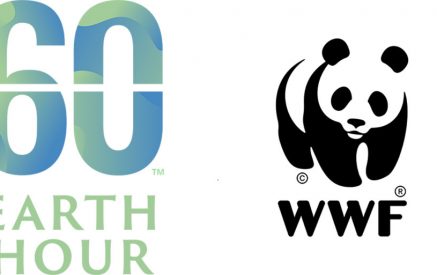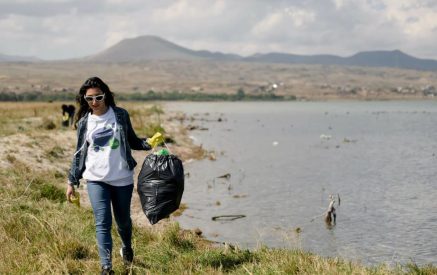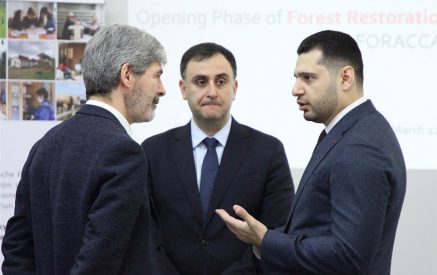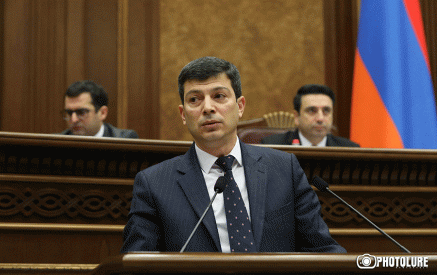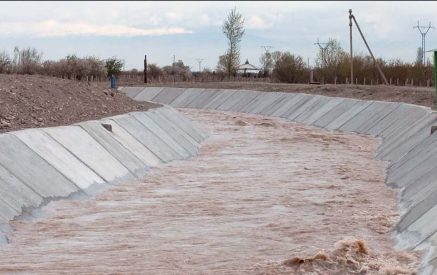Who would have thought a few years ago that cucumbers, broccoli or Brussels sprouts would grow in the Gegharkunik province? And how could farmers grow organic products without polluting the Armenian “sea” – Lake Sevan? This demanding task was solved by the hero of our story, Pargev Gharibyan, a master’s student at the Agrarian University.
Disturbing the ecosystem of Lake Sevan
Lake Sevan was clean, almost transparent when we visited it on 20 April. But as soon as the weather cools down, the aquatic ecosystem is disturbed and the lake turns green. The real reason is still unknown: environmentalists cite a number of reasons for the phenomenon. Among them is the fertilisation of the surrounding arable land with synthetic materials – nitrogen and phosphorus.
According to Varazdat Sargsyan, regional consultant of the EU4Sevan project, every opinion provokes ten others: “Today there is not even a single approach to what our problem is and what we should respond to,” he says.
Read also
Hovik Sayadyan, a sustainable land management consultant, says that while it may appear that everyone is aware of the problem, the actual situation is very different.
“Engaging in conversations with ordinary villagers and local residents reveals that many of them do not even imagine the consequences of their daily actions,” he says.
The authorities are aware of the problem, but they are looking for solutions through private initiatives, taking into account international practices.
EU support for sustainable land management
Pargev Gharibyan has also been working to address the issue. At first it was just a scientific work, but then Pargev managed to bring his ideas to life thanks to a grant. EU4Sevan is a four-year project launched in 2020 with the support of the European Union and the German Ministry for Economic Cooperation and Development. It is aimed at protecting the environment of Lake Sevan.
A total of €5.2 million has been allocated to the EU4Sevan project, with €300,000 specifically earmarked for the Sustainable Land Management component, from which Pargev has benefited.
“No matter how much research we did, or how many articles or dissertations we wrote, they would just remain on paper and be stashed away in a drawer, but the project gave us the opportunity to put the technology into practice,” says Pargev.
He explains that agricultural systems in the Sevan basin are malfunctioning. And the problem is precisely in the excess of nitrogen fertilizers, which, pouring into Sevan, disrupt the natural ecosystem of the lake and cause an increase in the number of algae.
“We decided to test the technology of using soil improvers in the Sevan basin, which involves a combination of organic fertilisers and natural mineral soil improvers,” he explains. The sustainable land management consultant explains that by employing appropriate technology, it is feasible to provide plants with a suitable and affordable quantity of nitrogen and phosphorus. In doing so, the plants can absorb these nutrients effectively. Consequently, the absence of excess amounts of nitrogen and phosphorus, as in the case of mineral fertilisers, means these chemicals are not ending up in Lake Sevan through the groundwater.
Water savings through soil improvers
According to experts, natural improvers possess the capacity to absorb excessive soil moisture and gradually release this water to plants during dry seasons. This ensures that the soil remains consistently saturated with water. For instance, instead of irrigating potatoes six times in a season, it is possible to achieve the same results with just four rounds of watering, resulting in water conservation.
According to Pargev, considering the substandard condition of water pipelines, it can be estimated that irrigating one hectare of row crops would require more than 600 cubic metres of water.
“If we manage two irrigations less per hectare during the growing season, we can save more than 1,200 cubic metres of water. And if we take into account that there are about 38-40,000 hectares of irrigated agricultural zone in the Sevan basin, then with the full use of technology, we will be able to save about 50 million cubic metres of water annually,” he says.
In turn, Varazdat Sargsyan, the project’s regional expert, notes that out of 32,000 hectares of land, the owners of only 22.5 hectares have switched to the use of innovative technology. In other words, only one per cent of the land is cultivated organically. If everyone switches to this method, then approximately 38.5 million cubic meters of water will be saved, which is three centimetres of the height of Lake Sevan.
“Only 5-7 per cent of individuals can be categorised as innovators. While most businesspeople will do their sums and implement cost-effective technologies to achieve significant outcomes, the majority of small farmers unfortunately lack the ability to perform such calculations,” says Sargsyan.
Pargev says many farmers don’t even know what organic fertiliser is, and the first question they ask is whether it is Persian or Georgian. He answers: neither Persian nor Georgian, it is innovative and Armenian. You don’t even need to leave Armenia to get the technology, the mineral components zeolite and bentonite can be purchased in Armenia directly from the mine.
While the raw material may seem expensive at first, it ends up being cheaper than conventional fertilisers, says Pargev. He adds that the comprehensive support package for one hectare was about 7-800,000 AMD.
“Of the natural mineral raw materials, the bentonite mine is located in Ijevan, and the zeolite mine is in Ayrum in the Noyemberyan Municipality,” he says. Vahan Gevorgyan, a resident of the village of Sarukhan, who is also a beneficiary of the project, is convinced that no farmer should be afraid of the work or the prices once they see the positive outcomes.
“I did a lot of experiments, but it never occurred to me that zeolite and bentonite could also be used,” he says.
Organic agricultural products and their market value
According to farmers, the use of technology allows them to obtain environmentally friendly, high-quality and beautiful products. Although the product has not yet passed the organic labelling process, it is more expensive on the market because it compares favourably with similar products.

